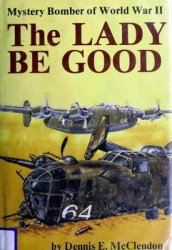Philosopher and scientist
Born: c. 510 b. c.e.; Croton, Magna Graecia (now in southern Italy)
Died: c. 430 b. c.e.; place unknown Also known as: Alkmaeon Category: Medicine
Life Almost nothing is known about the early life of Alcmaeon (alk-MEE-uhn) other than that his father’s name was Peirithous and that he was a native of Croton (Greek Crotona), a coastal town inside the “toe” of Italy. Diogenes Laertius reports that Alcmaeon wrote mostly on medicine, and it has been inferred from this statement that he was a physician. Given Croton’s reputation as a medical center, it is not unlikely. He wrote on physics and astronomy as well, however, and in this respect he resembles the Ionian philosophers, some of whom were interested in medicine. He was certainly a natural philosopher, interested in science and medicine; he may or may not have been a physician.
Alcmaeon lived in the pre-Socratic period, when the study of physiology was merely a part of philosophy. Only later did Hippocrates separate medicine from philosophy. Greek medical theory, in fact, grew out of philosophical speculation ratherthanthe practice ofmedicine. Alcmaeon’s contributions include both cosmological conjecture and anatomical research. He was credited in antiquity with having written the first treatise on natural philosophy. The book is no longer extant, but some idea of its contents can be gleaned from portions that were summarized by later writers. In the opening sentence of the work, Alcmaeon declared that the gods alone have certain knowledge, while for humans only inference from things seen is possible. Thus, he eschewed all-encompassing, oversimplified hypotheses in favor of careful observation as the basis of understanding nature.
Nevertheless, Alcmaeon shared with the Ionian philosophers an interest in natural speculation. Thus, he posited a microcosmic-macrocosmic relationship between humans and the universe. He believed that the human soul was immortal because it was continuously in motion, like the heavenly

Alcmaeon.
(Library of Congress)
Bodies, which he thought divine and immortal because they moved continuously and eternally in circles. While the heavenly bodies are immortal, however, humans perish because “they cannot join the beginning to the end.” Alcmaeon seems to mean by this that human life is not circular but linear and thus is not eternally renewed but runs down and dies when its motion ceases. Alcmaeon developed a theory of opposites, according to which human beings have within them pairs of opposing forces, such as black and white, bitter and sweet, good and bad, large and small. He may well have been indebted to the Pythagoreans, who posited pairs of contrary qualities on mathematical lines (or they may have borrowed the notion from him). Alcmaeon, however, applied his theory particularly to health and disease.
Alcmaeon defined health as a balance or equilibrium (isonomia) of opposing forces in the body. He explained disease as the excess or predominance (monarchia) of one of these qualities or pairs of opposites that upsets the balance. This predominance could be caused by an excess or deficiency of food or by such external factors as climate, locality, fatigue, or exertion.
Of all Alcmaeon’s theories, this concept of opposites was to be the most influential in later Greek thought. The Hippocratic treatise Peri archaies ietrikes (c. 430-400 b. c.e.; On Ancient Medicine, 1849) defends and elaborates on this explanation. Alcmaeon’s theoretical speculation was balanced by a notable empirical tendency. It is this mixture of theory and observation that gives his work a distinctive and even pioneering nature.
Alcmaeon was interested in physiology, and he appears to have been the first to test his theories by examination of the body. In a celebrated case, he cut out the eye of an animal (whether dead or alive is uncertain). He was apparently interested in observing the substances of which the eye was composed. Whether he dissected the eye is not known. He also discovered (or inferred the existence of) the channels that connect the eye to the brain (probably the optic nerves). There is no evidence that Alcmaeon ever dissected human corpses, and it is unlikely that he did so. He believed that the eye contained fire (which could be seen when the eye was lit) and water (which dissection revealed to have come from the brain). He concluded that there were similar passages connecting the other sense organs to the brain, and he described the passages connecting the brain to the mouth, nose, and ears (and quite possibly was the first to discover the Eustachian tubes). He thought that these channels were hollow and carried pneuma (air). Alcmaeon concluded that the brain provided the sensations of sight, hearing, smell, and taste, for he noticed that when a concussion occurred, the senses were affected. Similarly, when the passages were blocked, communication between the brain and the sense organs was cut off. Plato followed Alcmaeon in holding that the brain is the central organ of thought and feeling, but Aristotle and many other philosophers continued to attribute that function to the heart.
Alcmaeon also differed from most contemporary philosophers in distinguishing between sensation and thought. He observed that sensation is common to all animals, while only humans possess intelligence. According to Alcmaeon, whether the body was awake or asleep had to do with the amount of blood in the veins. Sleep was caused by the blood retiring to the larger blood vessels, while waking was the result of the blood being rediffused throughout the body.
Alcmaeon was also interested in embryology, and he opened birds’ eggs and examined the development of the embryos. He believed that the head, not the heart, was the first to develop. He resorted to speculation rather than observation in holding that human semen has its origin in the brain. He explained the sterility of mules by the theory that the seed produced by the male was too fine and cold, while the womb of the female did not open, and hence conception was prevented.
Influence Alcmaeon exercised considerable influence on subsequent Greek writers in the fields of medicine and biology. His idea that health is a balance of opposing forces in the body, although later modified, was accepted for many hundreds of years. His anatomical investigations and his recognition that the senses are connected to the brain established Alc-maeon as a genuine pioneer in the development of Greek medical science.
Further Reading
Beare, John I. Greek Theories of Elementary Cognition: From Alcmaeon to Aristotle. Mansfield Centre, Conn.: Martino, 2004.
Codellas, P. S. “Alcmaeon of Croton: His Life, Work, and Fragments.” Proceedings of the Royal Society of Medicine 25 (1931/1932): 10411046.
Gross, Charles G. Brain, Vision, Memory: Tales in the History ofNeurosci-ence. Cambridge: Massachusetts Institute of Technology Press, 1998. Guthrie, W. K. C. A History of Greek Philosophy. Vol. 1. New York: Cambridge University Press, 1978-1990.
Jones, W. H. S. Philosophy and Medicine in Ancient Greece. 1946. Reprint. New York: Arno Press, 1979.
Lloyd, Geoffrey. “Alcmaeon and the Early History of Dissection.” Sud-hoffs Archiv 59 (1975): 113-147.
Sigerist, Henry E., ed. Early Greek, Hindu, and Persian Medicine. Vol. 2 in A History of Medicine. New York: Oxford University Press, 1987.
Gary B. Ferngren
See also: Hippocrates; Medicine and Health; Philosophy; Pre-Socratic Philosophers; Science.




 World History
World History









